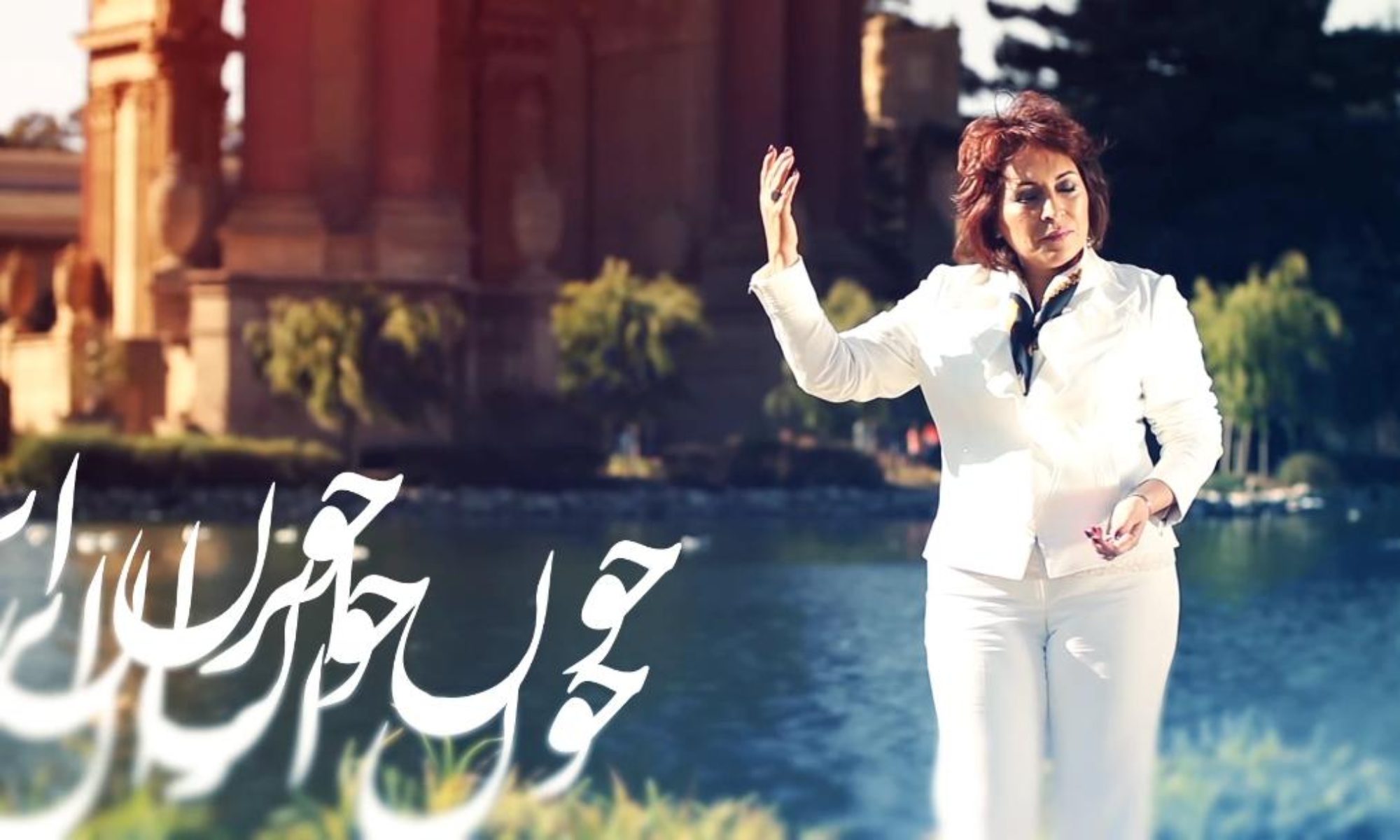Rojan and Bamdad Ensemble
Symbolizing the Kurdish Culture Through Hope & Vibrant Melodies
Rojan (vocals) was born in Sanandaj, Kurdistan to a cultured and music-loving family. There, she was introduced to and influenced by Kurdish music, which resonated within her heart and seeped through the fabric of her soul. Before long, destiny led Rojan and her family to Kermanshah where she spent her school years and divorced mystical Persian music. The yearning strings of her spirit vibrated with the ancient Sufi melodies of Iran. She undertook musical studies with the guidance of Hengameh Akhavan and subsequently studied orchestration under the supervision of Tahmoores Poornazeri and Jalal Zolfenoon, leading to the birth of two major albums, Delshodeh and Kurdestan. Rojan may be named the custodian of the songs of the mountains of Abidar, Oraman, Beesotoon, and Tagh Bostan. She is currently recording her new projects and resides with her family in California.

Sirvan Manhoobi (oud) started his musical journey at age 13 taking tar/sehtar, studying with Keivan Saket and Behrooz Hemati. He chose oud as his primary instrument and attended classes with Arsalan Kamkar. Other masters he has studied under include Mohamadreza Lotfi (Radif Navazi-Iranian classical music repertoire), Mehran Rohani (principles and history of music), Siamak Jahangiri (improvisation and analysis of Radif). Upon taking workshops in improvisation with Hossein Alizadeh, Manhoobi was also introduced to the shoorangiz instrument. He was awarded Best Soloist in Iranian music festivals and collaborated with Ardeshir Kamkar. Manhoobi formed the Bamdad Music Ensemble, focusing on Kurdish and Iranian classical music. He is an MA graduate of archaeology from Tehran University and has worked with Bahram Bezaei as a composer and tar player for his most recent play, Tarabnameh, at Stanford. Manhoobi currently lives in San Jose, performing, composing, and teaching Iranian and Kurdish music.
Farzin Dehghan (kamancheh) is an Iranian/American kamancheh player hailing from Isfahan, Iran. Despite his young age, his magnificent talents have taken him to many stages where he has performed Persian, Arabic, Indian, American, Kurdish, Turkish, pop, and cross-cultural music throughout the United States with renowned artists such as Aynur Dogan, Simon Shaheen, Abigail Washburn, Celeste Buckingham, Sandeep Das, Mike Block, Idan Raichel, Wu Man, Shane Shanahan, and Alireza ShahMohammadi. He has been mentored by world-renowned Persian classical music master Kayhan Kalhor and has also studied Arabic classical music with the Palestinian oud and violin virtuoso Simon Shaheen. Dehghan was invited as a fellow to the prestigious Omi International Arts Center Residency. He has recently travelled to China to perform at the World Music Asia 2017 festival in Shanghai, Wuhan, Chonqjing, and Beijing, as well as to work as a teaching artist in international schools in Beijing where he taught Iranian/Middle Eastern music and culture.
Ehsan Matoori (santur) was born in 1979 in Iran. He began learning the santur based on Maestro Faramarz Payvar’s method and studied instrumental and vocal Radif—the Persian musical repertory—with Parviz Meshkatian and Pashang Kamkar. Matoori has also studied music composition and harmony with Farhad Fakhroaldini and kids’ music with Soudabeh Salem. After moving to the U.S. in 2013, he has performed with well-known masters in global music including Sandeep Das, Jamal Mohamed, Paul Sriji, Maeve Gilchrist, Matthew Coley, Andrew Bleck, and Taher Khan. Matoori is the founder and director of AramArt World Music & Art Institute and has been a member of SMU World Music Ensemble since 2013. He currently lives in Dallas, Texas, where he teaches santur. His new album in collaboration with Iranian singer Mohsen Namjoo will be released on April 27, 2019.
Rumen “Sali” Shopov (davul) is a master Turkish-Romani drummer, singer, and string player from Gotse Delchev, Bulgaria. Romani music is not taught formally and does not have a system of notation, but is passed on from musician to musician, generation to generation. Shopov’s primary mentor was his uncle, Mustafa Kobalishtaliev, the best drummer in the region and the first Romani instrumentalist in the Nevrokopski Ensemble, Bulgaria’s first national folk ensemble. He also learned from his cousin Avdraman Teshovski and directors of the Nevrokopski Ensemble, Kyril Traikov and Zaprju Ikonomov. A charismatic and patient teacher, Shopov has taught at the Eastern European Folklife Center’s Balkan Music and Dance Workshops, Berkeley’s JazzSchool, UC Berkeley, University of Oregon, and more.
Nariman Assadi (daf, tombak, bendir, frame drum) was born in Hamedan, Iran, on January 1, 1992. Raised in Tehran, he always felt drawn to percussion instruments. At the age of 13, he began studying tombak under Master Amir Mogharab Samadi. From 2008 to 2013, Assadi performed at Vahdat Hall as a soloist and with the Persian Percussion Ensemble at Pars Academy, the premier music academy for children. After mastering tombak, he then began learning daf under the great Master Bijan Kamkar. With a strong understanding of the daf and tombak, Assadi started learning barbat (oud) under Master Mohammad Firouzi. In 2015, he immigrated to the U.S. and immediately began his professional music career by performing and attending festivals. In 2017, he started learning percussion performance and global music with Professor Daniel Kennedy at Sacramento State University. Along with being a member of various ensembles, Assadi also teaches daf, tombak, and music for children.
